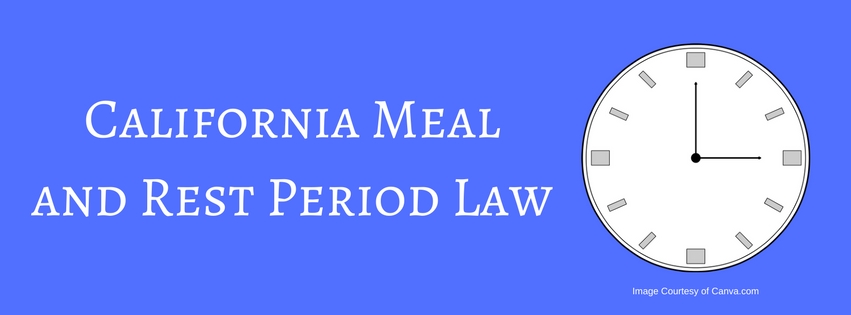Earlier this week we discussed the federal regulations for meal and rest periods, but did you know that many states have requirements that differ from federal law? As a majority of our clients, as well as AB&P’s main office, are located in California, we wanted to share CA regulations with you as well.
Meal Periods
While federal law claims that employers are not required to provide their employees with lunch breaks, California’s law says otherwise.
Demanding employers to provide their workers with a 30-minute meal period for every 5 hours of work done (two breaks for 10 hours of work, and so on), employees must be completely relieved of all duties while on a lunch break or the employer will otherwise have to compensate them for additional time spent working. If the employee is only set to work for a total of 6 hours, they have the right to waive the lunch break if desired, while the same thing goes for waiving the last of the two breaks within a 12-hour shift.
For employees who cannot be relieved completely of duty due to the nature of their job (i.e. emergency or on-call workers), paid on-duty breaks must be provided by the employer with written consent from the employee.
Rest Periods
Similar to meal periods, though not mandatory by federal law, California requires all employers to provide their workers with paid, 10-minute rest periods after every 4 hours of work. If practical, law demands that the breaks fall within the middle of the workday, while employees must be also be completely relieved of duty throughout their rest period.
Legal Rights
According to several defining Supreme Court rulings over the past couple years, if an employer follows California guidelines by relieving a worker of duty at the proper time, but the employee refuses to take or skips over their break, the employer can legally not be held liable – nor are they in charge of forcing employees to take breaks.
Similarly, if a California employer refuses to provide their employee with meal or rest periods throughout their shift, the employee has the right to demand an additional one-hour’s wage premium, per workday, on top of their regular paycheck. If the employer refuses to provide the premium as well, workers are encouraged to file a wage claim here.
Lastly, while it’s common for employees to leave the workplace while on break, if an employer expressly asks their worker not to leave, as long as that employee remains completely off-duty during the length of their break, they have a legal responsibility to stay on-site.
We hope this article helps you understand the California regulations, and feel free to check out our previous article for more on federal regulations.
